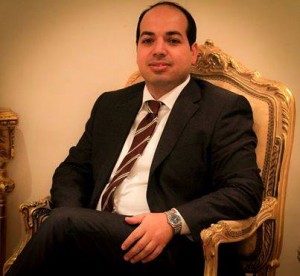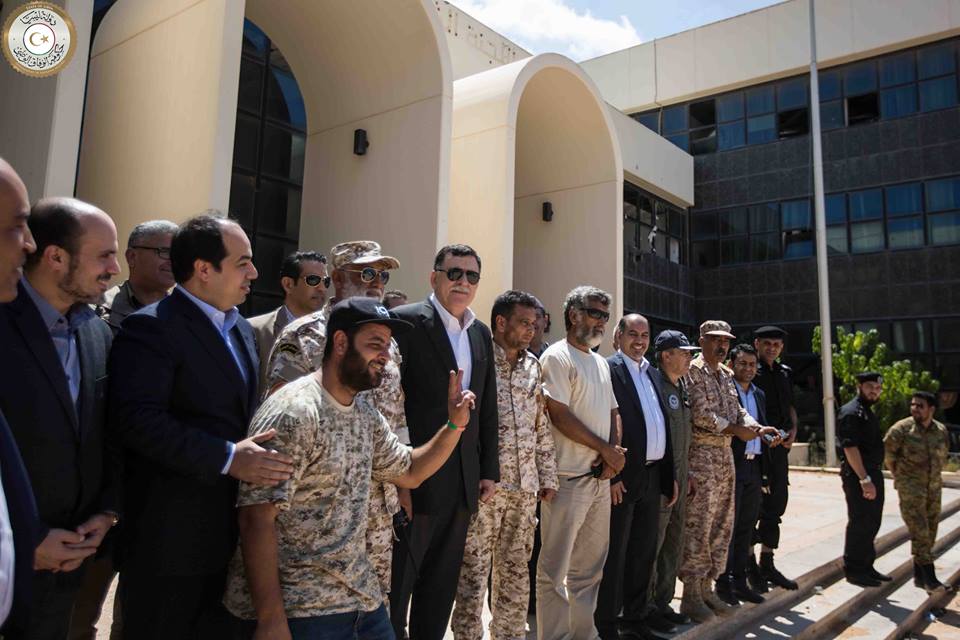By Libya Herald reporters.

Tripoli, 31 August 2016:
The Presidency Council had led an incredible effort to virtually clear IS forces from Sirte, its deputy leader Ahmed Maetig has said.
However he cautioned “In Sirte operations are almost finished, but we can not let our guard down, loosen the controls”. He told the Italian newspaper Repubblica that now the emphasis was shifting to hunting down those terrorists who had fled to the south into the desert or who had tried to infiltrate into other towns and villages.
In an extensive interview, the Italian-speaking Maetig, who had studied in Parma, was described as the managing director of the PC while the president Faiez Serraj was said to have a more “institutional’ role. Maetig explained his busy schedule: ”I am taking care of electrical supplies, the situation in Derna, the petroleum industry”. After the battle against IS was over, he said the PC would seek to rebuild the state.
He was asked about Khalif Hafter who had lost “the race” to Sirte but was now taking control of the oil wells in Cyrenaica and had his troops close to the Zuetina oil terminal.
Maetig replied that the UN-recognised PC had all the legal power to control the military. Hafter was welcome to fight terrorists but as an officer he was subject to political authority. “We do not want a new phase of illegality” said Maetig, “It would be very dangerous”.
Maetig went on to bemoan Egypt’s continuing support for Hafter, even though he said that Cairo was well aware that in the fight against terror in Libya “there are other more serious and credible forces”.
He said that Serraj had repeatedly tried to explain to the Egyptian government its view of the fight against terrorism and Hafter’s role within it.
“But it seems that the highest authorities in Egypt have a different point of view” said Maetig, adding “I myself have made several private visits to Egypt to present the PC’s view and to carry forward the process of understanding. I am sure that the Egyptian government wants stability and understanding between the Libyans and cannot stick to a particular personality”.
Oil was the main source of Libya’s revenues and the income of all its citizens he said. “Therefore it cannot remain under the control of players who are not answerable to the government. And if Hafter intends to fight terrorism, he should not undermine the main resource of the Libyans nor hinder attempts by the government to revive the public finances that are ultimately the tool for the fight against terrorism”.
Maetig continued: “We must realise that all the oil fields are the source of income of all Libyans and that should not be exploited during the armed clashes. The war against terrorism can not be fought in the oil fields”.
The PC’s deputy leader dismissed Italian concerns that terrorists were among the migrants being picked up and taken to Italy. “There are no indications that there are terrorists moving to Italy” he said. However, if documents were discovered in Sirte that indicated otherwise, the PC would offer them to the Italian government, regardless of any differences that existed between Tripoli and Rome, which shared a common mission to beat terrorism and crime in Libya.
Maetig outlined plans for a “triangle of development” between Libya, Italy and Egypt, saying that the Mediterranean had to become a sea that united rather than separated countries. To create a model for other important economic projects in the region, he explained Libya could provide the energy, Egypt the labour and skills while Italy had the small and medium-sized companies that understood the Libyan way.
“One of the most important points for the restoration of normalcy in Libyan cities is represented by the economic recovery, the return of construction companies, the projects and the jobs that attract young people moving them away from the armed formations” said Maetig, “Most of these projects will be financed by the Libyan commercial banks thus reducing the public sector’s role in favour of the private sector. Soon Libya will live”.







